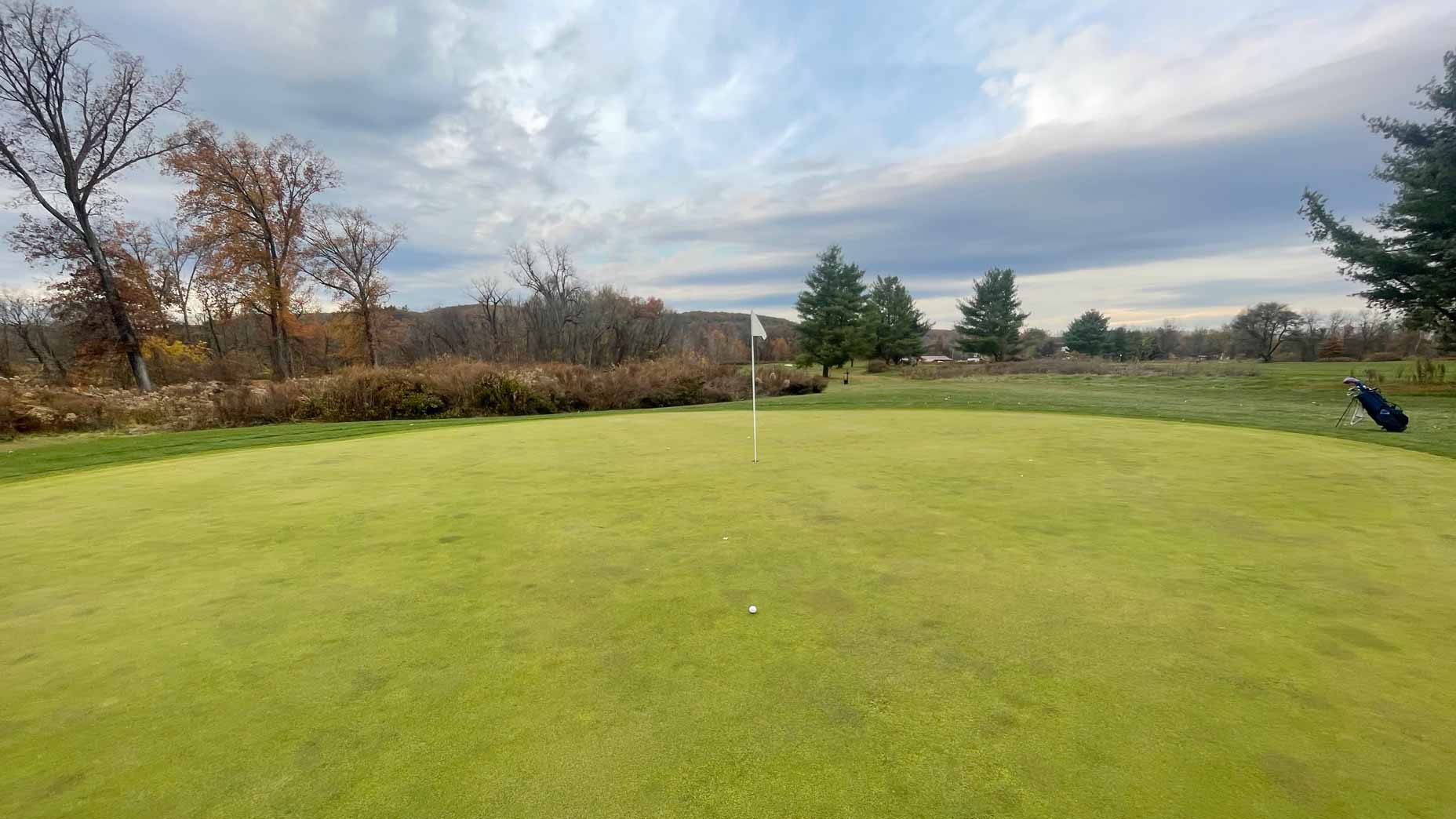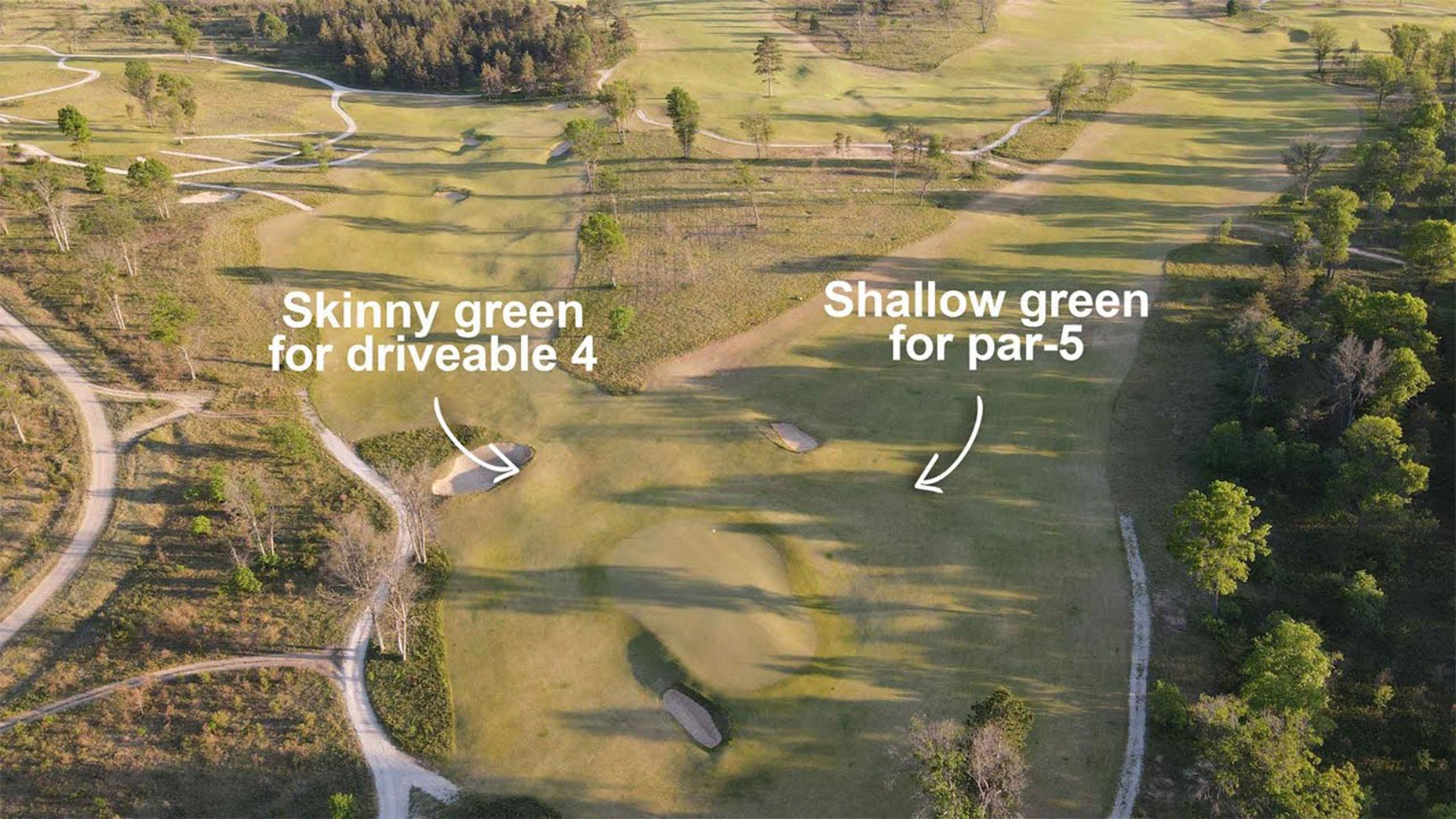[This story originally appeared in Sports Illustrated Golf+ in April 2016.]
Some months ago my boss (or one of them) assigned me an interesting story for this issue: Jeff Knox, the amateur golfer and Augusta National member who often plays as a marker on Masters weekends. He has given interviews after some of his rounds, and my best guess was that if Knox wanted to do the story — and if Billy Payne, the club’s chairman since 2006, gave his approval — it would happen. I wrote to Knox, and he referred my query to a media official at the club, who responded thusly:
“Mr. Knox fields many requests such as yours on an annual basis. He sends them my way because he respects the tradition of Mr. Payne being the sole voice of the Club. As you may know, our members do not give interviews on matters relative to the Club and Masters.”
That day I asked my boss if I could write up Billy Payne for the issue instead. I mean, who wouldn’t want to know more about the man who runs the Masters, which Tim Finchem, the PGA Tour commissioner, calls the “strongest brand” in golf? Who wouldn’t want to know more about the man and the “sole voice” behind the most famous and influential golf club in America?
My boss said yes. My colleague Gary Van Sickle took over the Knox story. Through a spokesman, Payne declined interview and photo requests. (He makes himself available to reporters three times a year, and I was out of cycle.) Fortunately others were willing to talk, including club employees, members, Tour players, caddies, Augustans and golf officials. Understandably they were skittish about being quoted. Every chairman of Augusta National has engendered some degree of awe and fear, even if the chairman is as suave as the current one. I just thought you should know the obstacles. End of preamble.
As they say on the 1st tee at the Masters, Fore please. Billy Payne now driving.
Augusta National Golf Club has never had a chairman like William Porter Payne, not even Clifford Roberts, a sui generis personality and Wall Street banker who founded the club in 1933 with Bobby Jones, the great amateur. Payne, a 68-year-old businessman and attorney from Atlanta who was the key figure in bringing the Olympics to the city in 1996, often cites the club’s two patron saints as his ultimate inspiration. But their vision was distinctly inward. That is: the club, the club, the club. It is unlikely that either could have imagined what Chairman Payne—he likes when people use the title—has done in his near decade at Augusta’s helm. No other chairman has thought to focus on the borders of the course, and the great, green world beyond them.

Among other things, Payne has taken on grow-the-game with evangelical verve. He once said, in the fancy-speak that typifies many of his public remarks, “What we’ve done is do what we’re supposed to do, and that is to be a beacon in the world of golf and to do our best to influence others to want to be a part of it.” And where Jones prized camaraderie and fellowship above all, Payne is trying to achieve perfection. He wants the tournament experience for players, fans and television viewers to meet his own outsized standards.
MORE MASTERS: The history of the green jacket
In public Payne is so reverent about the club that some guests are surprised to see what a regular guy he can be when the necktie comes off. He has been known to share insider stories, from long before his time at Augusta National, about Eisenhower on the course, gambling in the clubhouse and members bringing in women “over the fence” at night. His listeners are thunderstruck. Wherever he goes, Payne is the most interesting person in the room.
It’s pro bono work, being the chairman of Augusta National, but it is also golf’s ultimate high-status position. Payne, whose bad back in recent years has limited his golf—he can shoot in the 80s and sometimes lower—does not spend Masters week running from one party to another. Nothing like it. He is a creature of habit, and his habits are low-key. He represents the club at the champions dinner held the Tuesday before the start of the tournament. The next day he holds his annual state-of-the-Masters press conference. After that, he is seldom seen until Sunday night, when he presides over the postgame festivities. He watches the tournament’s TV coverage closely in his office and keeps tabs on threatening storm systems on a computer. Yes, in a perfect world the club chairman would control the weather and who makes which putts. But there are limits to what even Billy Payne can do.
This list of Payne’s achievements is limited to 10 items only by convention.
1. Payne—who inherited an all-male membership—invited three women to join the club, starting in 2012 with former Secretary of State Condoleezza Rice and businesswoman Darla Moore. These admissions were a relief to the PGA Tour, which pays lip service to inclusiveness. They also made life easier for some club members, particularly those with large public profiles, such as Roger Goodell of the NFL, Jerry Yang of Yahoo and Bill Gates of the Bill & Melinda Gates Foundation.

2. Payne started two major amateur events, the Latin America Amateur and the Asia-Pacific Amateur, the winners of which are invited to play in the Masters. As a result, a pair of teenagers will tee it up at Augusta this year: Paul Chaplet, 16, of Costa Rica and Jin Cheng, 18, of China. (Grow-the-game I.)
3. Working with the USGA and the PGA of America, Payne in 2014 rolled out a national junior competition called Drive, Chip & Putt. Across the country, thousands of kids played in approximately 250 qualifying events, winnowing down the group to 80 boys and girls who will convene at Augusta National on the Sunday before the Masters to play in the finals. (Grow-the-game II.)
4. Payne has overseen an enormous expansion, nationally and internationally, of the tournament’s coverage on broadcast and cable TV and particularly by way of the Internet. Viewers may now see far more of the Masters, including the Wednesday par-3 tournament and press conferences, and have far speedier access to more tournament information. (Grow-the-game III.)
5. Payne took over an already financially secure not-for-profit club and vastly improved its balance sheet, to the point where it plans to purchase, reportedly for $27 million and without any real hesitancy, a small strip of land from the adjacent Augusta Country Club. One goal is to give the club the option of lengthening Augusta National’s iconic 510-yard, par-5 13th hole. Another is to give the club more of a buffer from its bustling neighbor. Payne is not afraid to spend the club’s money. He has hired high-level executives from Disney, Ritz-Carlton and other brand-name companies to help run the business of the Masters, most particularly in marketing and merchandising. (Spend-money-to-make-money I.)
MORE MASTERS: Meet the man who declined 20 Masters invites
6. Payne has dramatically increased the dining and beverage options for some big-ticket patrons. He oversaw the construction of a sprawling entertainment complex of high-end restaurants, bars and flat-screen TVs off the 5th hole called Berckmans Place, which opened in 2013. This mall in the pines measures 90,000 square feet, not including the three putting greens that abut it. It’s open one week a year, and it makes money. Guests, who typically spend about $6,000 for a badge, might see Rice or Lynn Swann, among other recognizable members, representing the club as greeters. (Spend-money-to-make-money II.)
7. Payne oversaw the building of an 18-acre driving range on a former parking lot along with a smallish caddie clubhouse at the far end, in a spot so private that some players prefer it to the actual clubhouse, where they are likely to encounter various people—family members and reporters, for instance—who seek to occupy their time.
8. Under Payne, the club arranged for the purchase of dozens of homes on a neighboring housing development, razed them and turned the 120 rolling acres into a grass-and-gravel—and free!—parking lot that for 51 weeks a year looks like a cemetery waiting for clients. Related to that, Payne arranged for the club to lend money to the city of Augusta for a rerouting of Berckmans Road, which parallels the west side of the course, a move that improves traffic flow during the tournament and gives the club more of a buffer from public incursions.
9. Payne oversaw the stately, solemn burial of the club’s iconic Eisenhower Tree, a landmark of the 17th hole until an ice storm led to its demise in 2014. “The loss of the Eisenhower Tree is difficult news to accept,” Payne said at the time in a statement. Funeral services, as you would expect, were private.

10. In keeping with tradition, Payne has made sure the club does not gouge its fans. The club’s famous pimento cheese sandwich goes for $1.50, the same price it was when he became chairman.
Billy Payne is not a beloved figure at the club, as was one of his predecessors, Jack Stephens, an Arkansas billionaire. Payne played football at Georgia and was active in his fraternity, Phi Delta Theta, but he is nothing like a good old boy, as was another chairman, Hord Hardin. Payne is not deeply frugal, as was Cliff Roberts (who was almost comically so), and he is not steeped in the lore of golf, as was Jones.
But he developed a creative and ambitious to-do list, and he has applied himself to it with remarkable effectiveness. Payne has a group of members and employees willing to move heaven and earth to help him fulfill his vision. And yet his position comes with a hurdle that would require someone with Shakespeare’s insights into power to truly explore. Anything connected to Augusta National or the Masters is loaded with cachet—overloaded, really—and every day, directly or indirectly, the chairman encounters people eager to curry favor with him. He holds all the cards, which means he faces the same problem all emperors do: Who are the people who tell him what he actually needs to hear?
Payne typically works quietly. When longtime club manager Jim Armstrong retired in 2013, Payne made him a member, and there was certainly no press release about that. (There was when Rice and Moore joined.) Under Payne’s watch, the club has substantially increased its charitable giving, with millions upon millions distributed annually, but specific numbers are hard to find. To promote them would be showy and gauche, and that is not the club’s way.
But Payne is no wallflower. Not at all. When Tiger Woods played in the 2010 Masters, his first tournament after his infamous sex scandal, Payne read a 284-word statement about how the golfer “disappointed all of us,” concluding with the importance of “second chances.” Depending on whom you ask, his remarks were either hopeful and necessary or sanctimonious and presumptuous. Few are neutral about Billy Payne.
“I like Billy,” Vijay Singh said during the Florida swing, when all of golf starts thinking about the Masters, which Singh won in 2000. “Augusta has to be run with a firm hand, and Billy has it. It’s part of what makes Augusta Augusta.”
Given the source, it’s a magnificent compliment. One thing about Singh: He would never try to curry favor with anybody, not even the chairman of the Augusta National Golf Club.
Among former champions, Jack Nicklaus and Arnold Palmer, who are dues-paying members of the club, broadly share Singh’s view. But Nicklaus has a different relationship with Payne than he did with any of Payne’s five predecessors. Beginning in the early 1970s, Nicklaus, a prominent architect and a six-time Masters winner, was regularly consulted about proposed changes to the course. Under Payne, who has made little more than tweaks to various holes, nothing like that has happened. Nicklaus has good company. Other former winners have also found Payne unreceptive to suggestions.
Payne, like Palmer, venerates the club’s distinctive green jacket, worn by members and Masters winners when they are at the club, but never off-campus, except by the reigning champion. When a green jacket once belonging to Art Wall, the 1959 winner, was bought by a private collector in 2012 for nearly $62,000, the club arranged to get the jacket back and return it to Augusta National. Payne, by special dispensation, allows members who attend the two new amateur events to wear their club coats overseas. He once observed, “The green jacket doesn’t need a lot of interpretation anywhere in the world.”

Appearance is important to Payne. For instance, members have learned that the chairman does not like the loafers-no-socks look. During one members’ weekend Payne instructed pro-shop staffers to distribute hosiery to any sockless person. Members and guests are still required to wear long pants while playing. On one pre-Masters visit, Woods, unaware of the dress code, arrived in shorts and ended up playing in rain pants.
Payne keeps track of every aspect of the club and measures virtually anything that can be measured. There have been members who have been told they are playing the course too much, and at least one member, race car legend Roger Penske, was informed by letter he was not coming around enough. The letter to Penske, who lives outside of Detroit, was ultimately about Payne’s goal of increasing member participation in the club. (Penske declined an interview request.) One of Payne’s objectives is to make the club, with members from all over the country—and to a degree, the world—feel more like a club.
He wants life at Augusta National to unfold in a genteel and time-honored way, and he will use modern means to get it. Club members and employees say that Payne has installed video cameras in trees on the course. How else, they ask, could Payne know immediately after a round that a member had permitted a caddie to drive a cart on the course, or violate any other Payne edict? For decades Frank Broyles, the retired Arkansas football coach and longtime member, would play 36 holes a day on his Augusta visits, getting lunch from the clubhouse in takeout containers between rounds. Payne put an end to that practice, telling the coach to have a proper lunch in the clubhouse, which is what he now does. “It’s very convenient,” Broyles said the other day of his new custom. There was not even a hint of complaint in his voice, and he said he is still—at 91!—able to go around twice in a day at Augusta. Broyles joined the club nearly a half-century ago, when Roberts was chairman. “Mr. Payne runs the club just like Mr. Roberts did,” Broyles said, which he meant as a compliment. Both chairmen, to get it down to a word, were particular.
One day Knox, the club’s best player, was hitting balls. Payne approached him, and their conversation, in club lore, supposedly went like this:
“Jeff, who you playing with today?”
“Oh, I’m not playing today, Mr. Payne. I’m just hitting balls.”
“Jeff, why don’t we say you go over to the country club and hit your balls there?” That is, the Augusta Country Club.
Now, is a man of Payne’s sophistication actually going to say that to a fellow and distinguished member? Not likely. What is far more realistic is that Payne told Knox that the range he was using was meant as a warmup area, not for long practice sessions. But the exchange, regardless of what was actually said, is all part of a piece: Payne has a vision for every aspect of the club, and he is determined to see it fulfilled. It’s as if he has taken a solemn oath to protect tradition. He holds himself up as the club’s ultimate role model, and he does what he needs to do to maintain authority. He didn’t take the job to win popularity contests.
During the dessert course of a recent champions dinner, Bernhard Langer, a two-time Masters winner, talked about a hole he thinks could be improved, the bunker-free 14th. Visually he doesn’t like the tee shot, he told his fellow champions and the chairman. The green, he said, is too severe.
Payne cut him off.
“This is not the time or place for this kind of discussion,” Payne said, as the conversation has been recounted.
“Then when is a good time?” Langer asked.
“Write a letter,” Payne replied, banging the dinner table and announcing, “This dinner is adjourned!”
Some of the champions responded with nervous laughter. Others sat in stunned silence. Langer was steaming.
Let’s not end on that discordant note. After all, what have Augusta National and the Masters done for any of us except enrich our lives? If you visit the club as a guest, the experience of being there and playing the course is pretty much the same as it ever was. Payne’s efforts have made attending the Masters more convenient than ever, even if it there are shades of Disneyland to the place now. His grow-the-game initiatives will introduce millions of people to golf. It’s all good.
William (Hootie) Johnson, Payne’s predecessor, served as chairman for about eight years, and Johnson’s predecessor, Jack Stephens, served for seven. Before that, Hardin was in the position for about 11 years. Payne’s 10-year anniversary comes in early May, and there has been plenty of talk at Augusta about who could possibly succeed him. Various names are offered in these discussions, but all of the potential candidates have one serious flaw.
They are not William Porter Payne.






